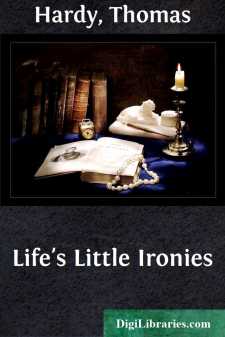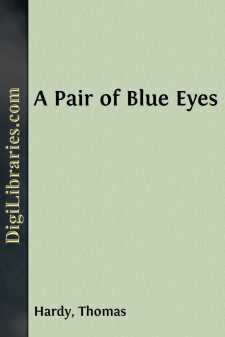Categories
- Antiques & Collectibles 13
- Architecture 36
- Art 48
- Bibles 22
- Biography & Autobiography 813
- Body, Mind & Spirit 141
- Business & Economics 28
- Children's Books 12
- Children's Fiction 9
- Computers 4
- Cooking 94
- Crafts & Hobbies 4
- Drama 346
- Education 46
- Family & Relationships 57
- Fiction 11826
- Games 19
- Gardening 17
- Health & Fitness 34
- History 1377
- House & Home 1
- Humor 147
- Juvenile Fiction 1873
- Juvenile Nonfiction 202
- Language Arts & Disciplines 88
- Law 16
- Literary Collections 686
- Literary Criticism 179
- Mathematics 13
- Medical 41
- Music 40
- Nature 179
- Non-Classifiable 1768
- Performing Arts 7
- Periodicals 1453
- Philosophy 64
- Photography 2
- Poetry 896
- Political Science 203
- Psychology 42
- Reference 154
- Religion 513
- Science 126
- Self-Help 83
- Social Science 81
- Sports & Recreation 34
- Study Aids 3
- Technology & Engineering 59
- Transportation 23
- Travel 463
- True Crime 29
Life's Little Ironies
by: Thomas Hardy
Categories:
Description:
Excerpt
THE SON’S VETO
CHAPTER I
To the eyes of a man viewing it from behind, the nut-brown hair was a wonder and a mystery. Under the black beaver hat, surmounted by its tuft of black feathers, the long locks, braided and twisted and coiled like the rushes of a basket, composed a rare, if somewhat barbaric, example of ingenious art. One could understand such weavings and coilings being wrought to last intact for a year, or even a calendar month; but that they should be all demolished regularly at bedtime, after a single day of permanence, seemed a reckless waste of successful fabrication.
And she had done it all herself, poor thing. She had no maid, and it was almost the only accomplishment she could boast of. Hence the unstinted pains.
She was a young invalid lady—not so very much of an invalid—sitting in a wheeled chair, which had been pulled up in the front part of a green enclosure, close to a bandstand, where a concert was going on, during a warm June afternoon. It had place in one of the minor parks or private gardens that are to be found in the suburbs of London, and was the effort of a local association to raise money for some charity. There are worlds within worlds in the great city, and though nobody outside the immediate district had ever heard of the charity, or the band, or the garden, the enclosure was filled with an interested audience sufficiently informed on all these.
As the strains proceeded many of the listeners observed the chaired lady, whose back hair, by reason of her prominent position, so challenged inspection. Her face was not easily discernible, but the aforesaid cunning tress-weavings, the white ear and poll, and the curve of a cheek which was neither flaccid nor sallow, were signals that led to the expectation of good beauty in front. Such expectations are not infrequently disappointed as soon as the disclosure comes; and in the present case, when the lady, by a turn of the head, at length revealed herself, she was not so handsome as the people behind her had supposed, and even hoped—they did not know why.
For one thing (alas! the commonness of this complaint), she was less young than they had fancied her to be. Yet attractive her face unquestionably was, and not at all sickly. The revelation of its details came each time she turned to talk to a boy of twelve or thirteen who stood beside her, and the shape of whose hat and jacket implied that he belonged to a well-known public school. The immediate bystanders could hear that he called her ‘Mother.’
When the end of the recital was reached, and the audience withdrew, many chose to find their way out by passing at her elbow. Almost all turned their heads to take a full and near look at the interesting woman, who remained stationary in the chair till the way should be clear enough for her to be wheeled out without obstruction. As if she expected their glances, and did not mind gratifying their curiosity, she met the eyes of several of her observers by lifting her own, showing these to be soft, brown, and affectionate orbs, a little plaintive in their regard....












